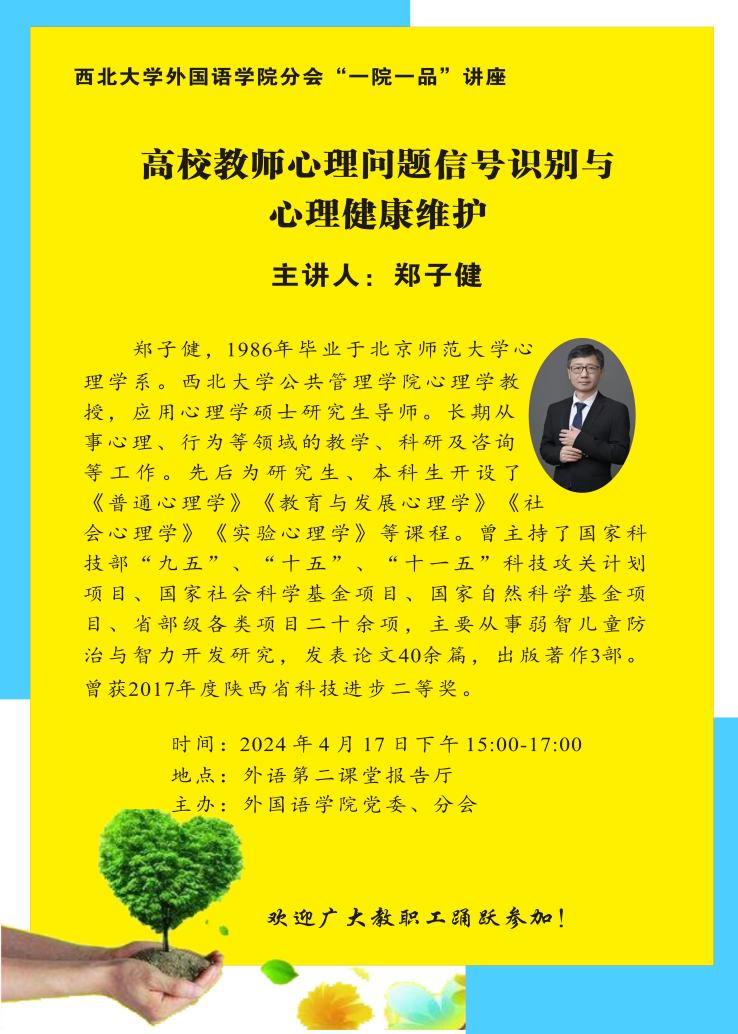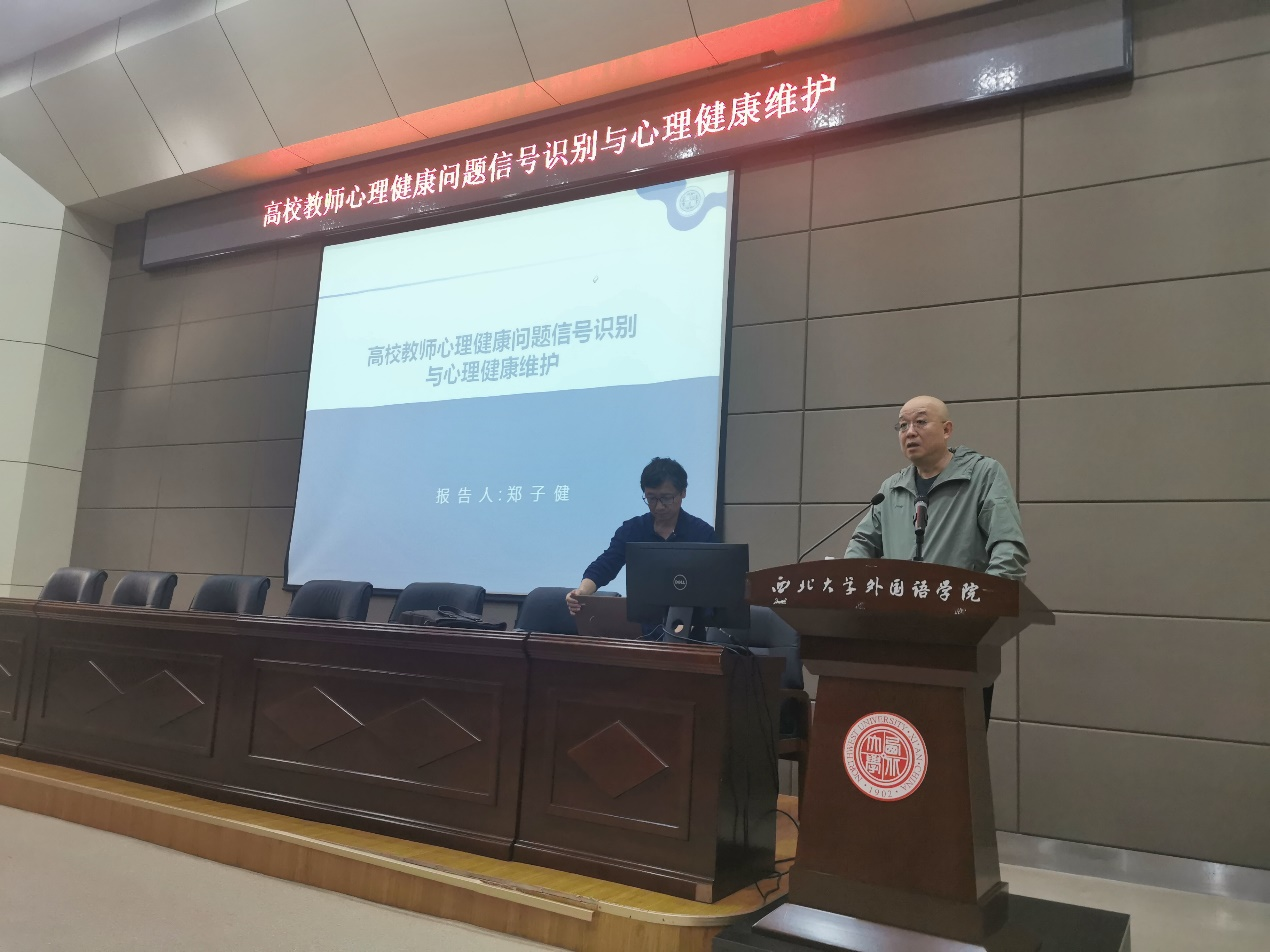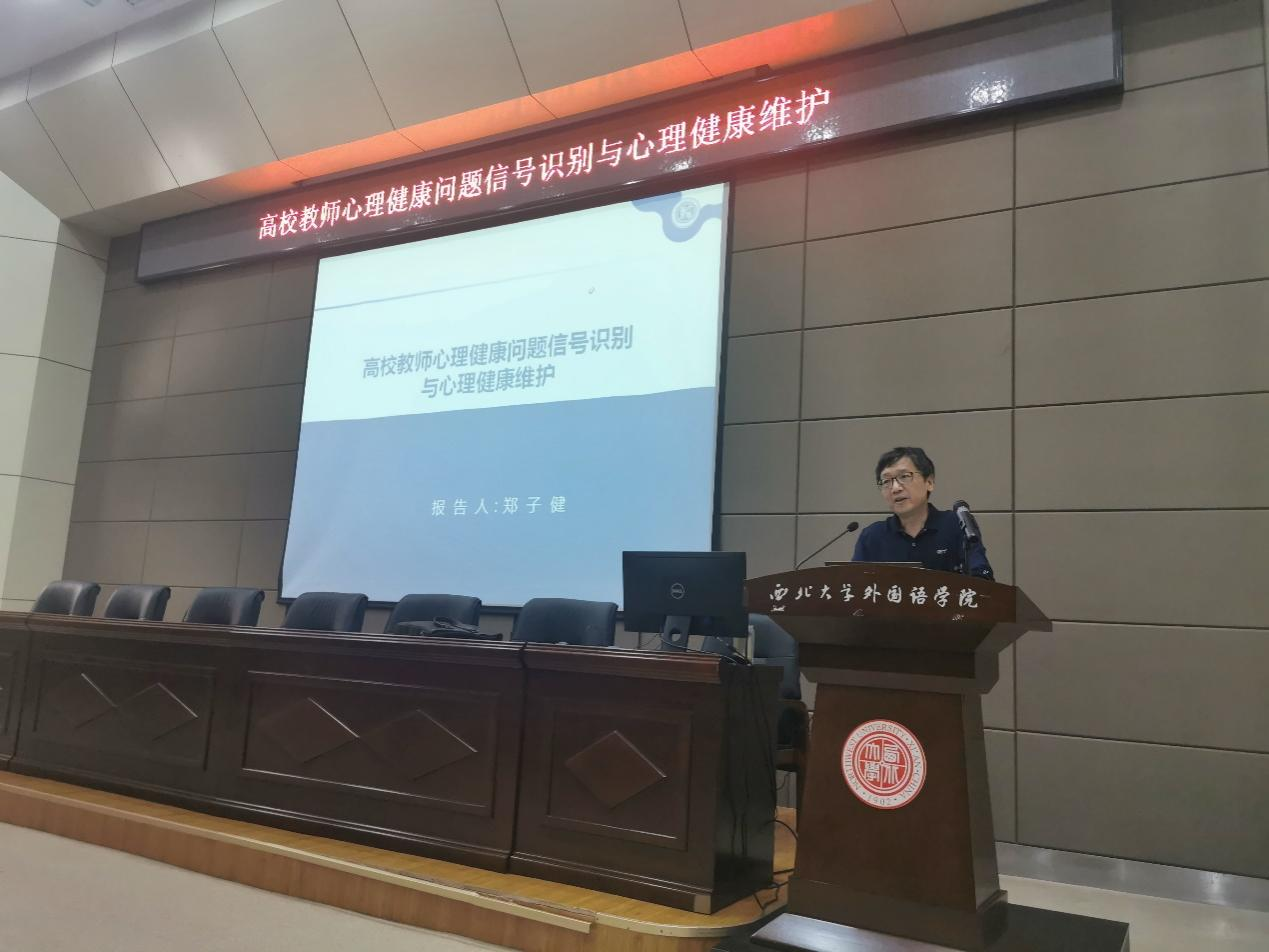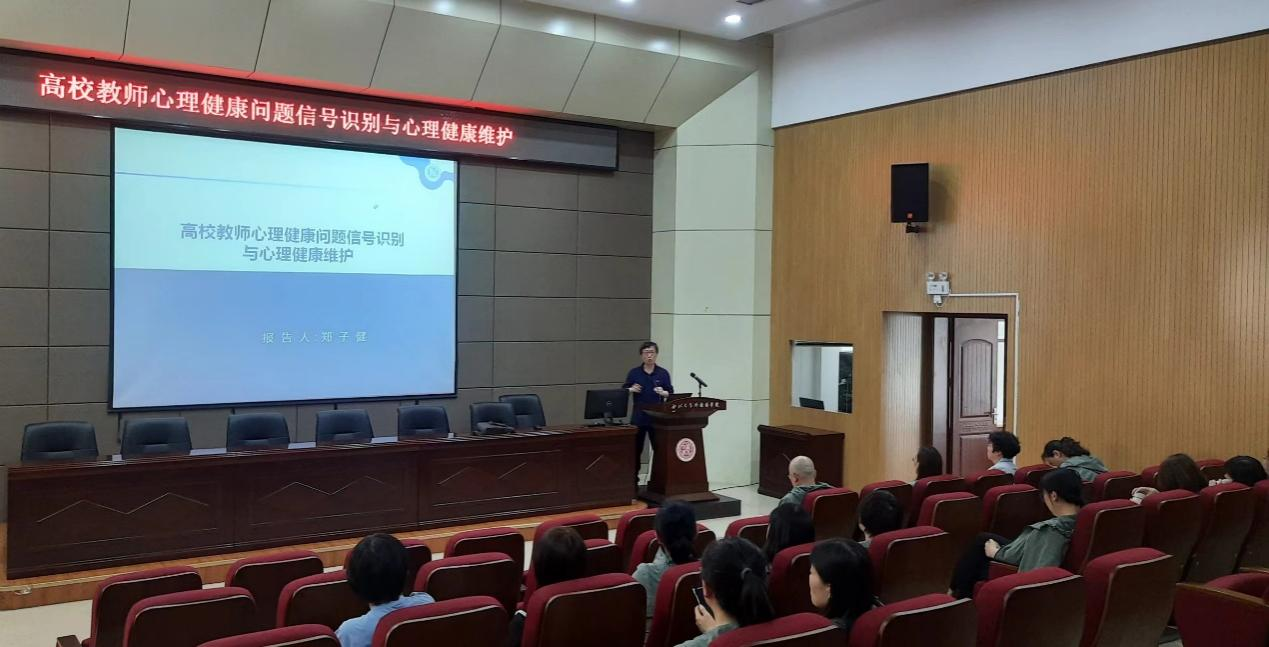To support the mental health of our faculty and staff and enhance their resilience to stress, our school organized a lecture on April 17, 2024, in the Second Classroom Auditorium. The lecture, titled “Identifying Psychological Issues and Maintaining Mental Health for University Teachers”, was delivered by Professor Zheng Zijian, a psychology professor at the School of Public Administration, Northwest University, and a graduate advisor for applied psychology students. More than 20 faculty and staff members attended the event.

Before the lecture, Wang Jun, the Party Secretary of our school, introduced the speaker and shared the purpose of the event, and emphasized the importance of mental health for every faculty member.
During the lecture, Professor Zheng provided an in-depth, professional analysis of mental health issues. He explained that the mind is a tool for guiding the body to align effectively with nature, and psychological problems occur when the mind fails to guide the body in this way. Professor Zheng discussed the basic symptoms, development process, easy identification, and coping strategies for mental health issues, focusing specifically on those faced by university teachers.

Professor Zheng highlighted that the most common psychological problems among university faculty are anxiety and depression. He noted that anxiety is characterized by continuous high levels of excitement, while depression is marked by sustained low excitement. Anxiety can be both a motivator and a source of pressure. The causes of anxiety are diverse, including factors related to personality (e.g., being intelligent, introverted, or sensitive), thinking (e.g., logical or illogical thoughts), emotions (e.g., whether emotions are balanced), and physiology (e.g., whether there are underlying health conditions). To identify these factors, one should consider the context (e.g., whether a situation is likely to trigger an abnormal response), the connection (e.g., whether there is a reasonable relationship between the situation and the reaction), and the response (e.g., whether the response can be explained). The primary sources of anxiety include self-awareness, interpersonal relationships, work pressure and family issues. Coping strategies for anxiety mainly involve adjusting expectations and overcoming fear.
After the lecture, Professor Zheng engaged in an interactive discussion with the faculty, and answered detailed questions on topics such as parent-child relationships and academic pressure.

